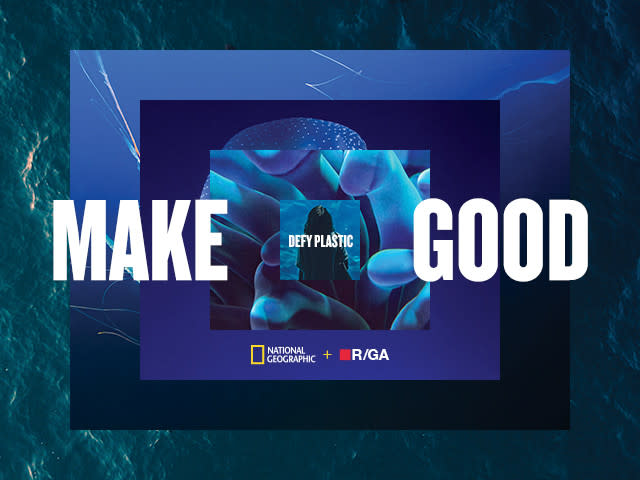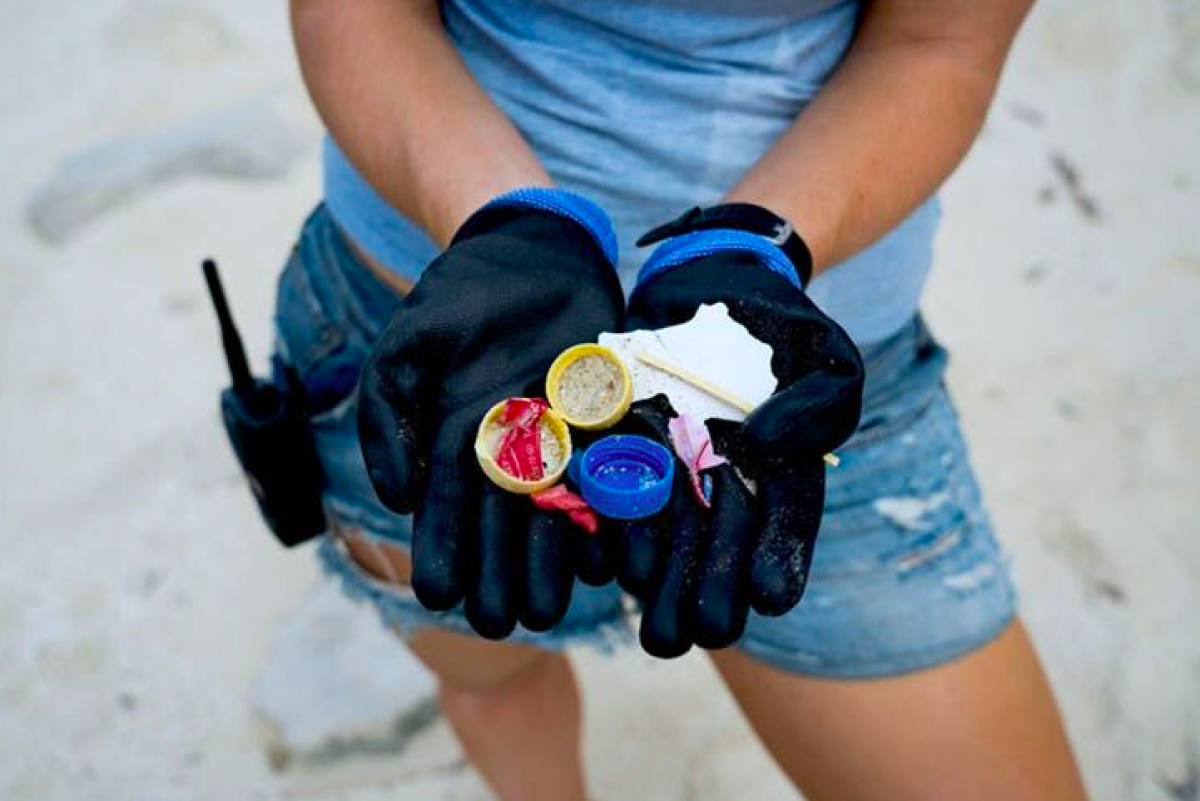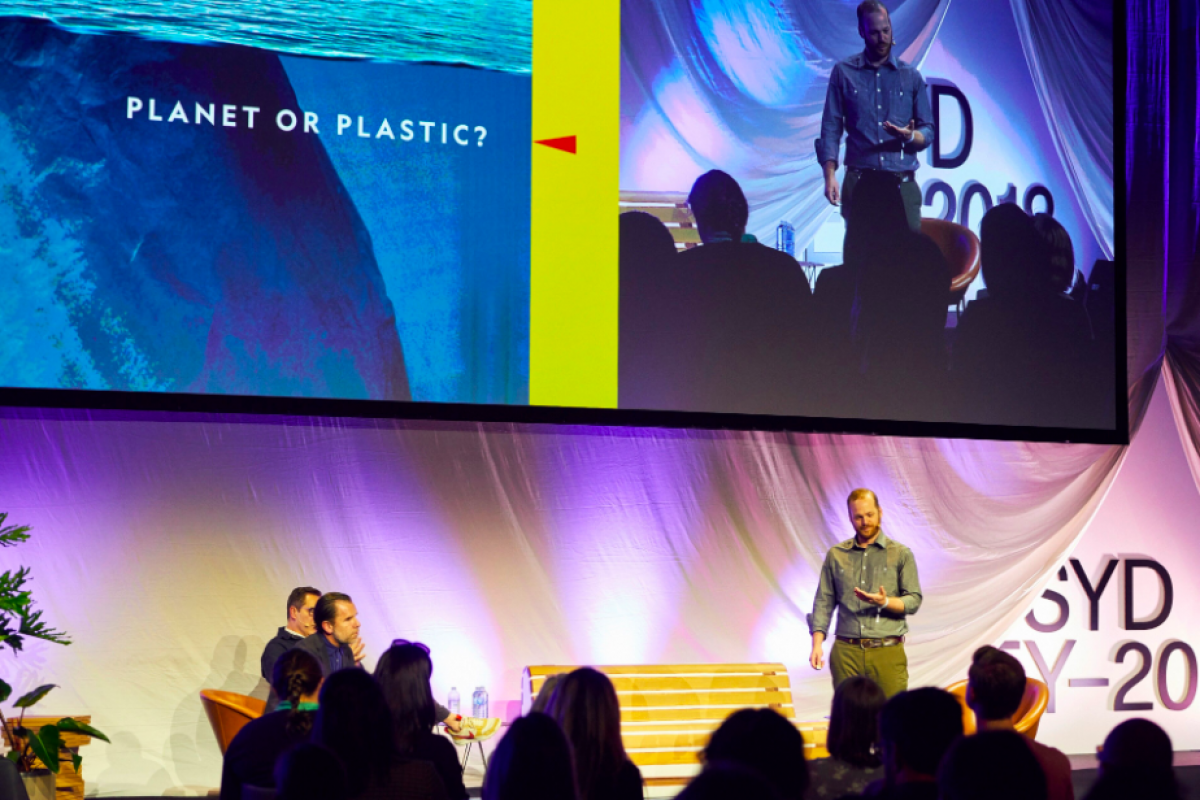Can you solve the plastic problem?

Each year over 9 million tons of plastic waste ends up in the ocean. We’re literally drowning in it. Single use plastics smother our coastlines, coral reefs and forests; it finds itself in whales bellies and birds nests; even in the groundwater reserves we tap for drinking water. We need it. We depend on it. And it’s killing us.
Of course there has never been such collective conscious to such a problem. We see it in student climate rallies in the CBDs or protests in far north Queensland — these issues become the strata that unite generations and create room for change. But we need the intellectual to become the visceral if we’re going to succeed in the limited timeframe allowed to us; more work needs to be done.
This is where you come in.
‘Make Good’ at Semi Permanent.
National Geographic and global innovation consultancy R/GA Australia are teaming up to launch ‘Make Good’, a programme to prove that transformational ideas can come from anywhere or anyone. And they’re currently inviting Australians to put their ideas forward to redesign plastic and reverse the harm it’s inflicting on the environment.
Applicants will be applying for a place at the Defy Plastic Innovation Lab, held at Carriageworks during Semi Permanent Sydney 2019. With a chance to receive advice from the likes of National Geographic Explorer Lilly Sedaghat and R/GA’s VP Chief Creative Officer, APAC Seamus Higgins, the personal experience will be broadly transformational. On the other hand, the outcome may just help save the planet.
“Together, our goal is to stimulate new ways of thinking and to support young changemakers whose ideas could help address the challenges they’ve been unlucky enough to inherit.” — Drew Klonsky, Executive Director of Business Transformation at R/GA

How it works
'Make Good' is split into three entry tracks, each addressing a singular part of the plastic pollution problem: Reduce, Revive, Redesign.
Reduce: Ideas that accelerate behavioural change around the use of single-use plastic. Here, applicants will submit ideas using technology and storytelling.
Revive: Ideas that revive our coastlines and the oceans by removing plastic while we stem the flow from existing sources.
Redesign: Ideas that rethink the way single-use plastics are used in everyday products and services; think new materials or products and services enabled by zero waste business models.
Revive: Ideas that revive our coastlines and the oceans by removing plastic while we stem the flow from existing sources.
Redesign: Ideas that rethink the way single-use plastics are used in everyday products and services; think new materials or products and services enabled by zero waste business models.
Applicants are able to submit ideas for any and all tracks to turn ambitious ideas into reality.
“Big, complicated environmental issues like plastic pollution rarely have an obvious fix, but we strongly believe that projects like Make Good can serve as a powerful means to identify, develop, and scale solutions that may otherwise have gone un-invented.” — Sam Boynton, Senior Manager of Business Development & Partnerships at National Geographic.

How do I apply?
Individuals or teams may submit their ideas up until 15th May. A panel of experts from both National Geographic and R/GA Australia will select the strongest entries by 17th May, and finalists will take part in the Defy Plastic Innovation lab at Semi Permanent including one-on-one mentorship sessions and inspirational talks and panel discussions.
Sound like a challenge you’re ready for? Make Good is for the curious, the makers, the doers; the innovators, researchers, scientists, storytellers and students. And we can’t wait to change the world with you.
To find out more or to register, visit defyplastic.com
Semi Permanent Sydney 2019 is a plastic-free event.